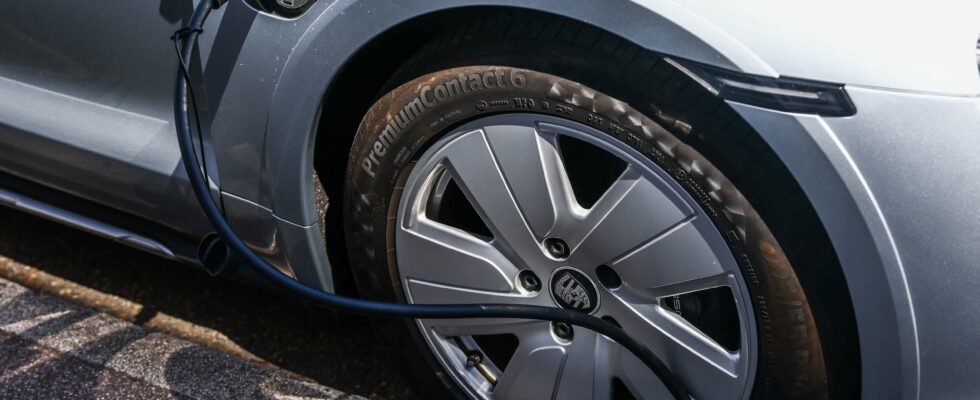Jordan Bardella (RN), François-Xavier Bellamy (LR) and Marion Maréchal (Reconquête) have made it a marker of their campaign for the Europeans: stopping the sale of new vehicles with thermal engines in 2035 would be an economic disaster, social, geopolitical and even ecological. According to the three candidates, this deadline, set by the European Commission in July 2021 then confirmed by the European Parliament, must be purely and simply repealed. A specialist in industrial strategy issues in the automobile industry and partner at Deloitte, Jean-Michel Pinto is surprised by the turn taken by this debate, which he judges to be out of step with the realities of the sector.
L’Express: The end of sales of new thermal cars in 2035 seems to be unanimously against it within the right and the far right. How was this date, still distant, decided at European level?
Jean-Michel Pinto: This deadline is the result of a compromise. The car manufacturers pleaded for 2040, the supporters of a faster ecological transition for 2030. Following the Cop26 in Glasgow, in 2021, the initial proposal from 11 countries led by Denmark aimed for a ban in 2030, postponed in the final text to 2035. This is the target that the European Commission has chosen. A review clause is nevertheless planned in 2026, to take stock and possibly revise the calendar.
The political debate which is crystallizing today around this date surprises me: for certain political leaders, we must be for or against the ban on thermal vehicles. But the subject is no longer this. Does switching to electric reduce a car’s CO2 emissions? The answer is very clearly yes. An electric vehicle emits more carbon during its manufacture but less during use. Regarding its lifespan, there is a consensus today that its total emissions are 50 to 70% lower than that of a thermal vehicle. And this gap will continue to widen if, as many manufacturers are working to do, we manage to further reduce emissions during the production phase. The only question that matters today is how to achieve this change, and at what pace?
Especially since car manufacturers have already made their upgrades…
Absolutely ! They have invested heavily in new factories and new product platforms. They have expanded their range of electric vehicles. In short, they got into working order. There are nuances between European manufacturers on the pace and method, but no disagreement on substance. Because there is no alternative. The Chinese were the first to go electric and today have very advanced technologies. The Americans came later, but today they are investing colossal resources. And we, Europeans, should we stay on thermal?
From an industrial and technological point of view, this reasoning does not hold. We cannot afford to miss the boat again, as we did on solar panels. This transition makes sense from an ecological point of view but also economically, by necessity, since Europe cannot let its two main competitors take dominant positions on this key market for European industry.
The debate on the method is, however, legitimate. Some industrialists sometimes say: “The United States subsidizes, China plans and Europe regulates”. Beyond just standards, Europe must activate all levers to also equip itself with an efficient industry in this area.
How important is the sector in Europe?
It is an essential vector of prosperity. A Deloitte study recalled this in 2020. The automobile industry represents 7% of the gross added value of the European Union and 11% of the added value produced by the private sector. For comparison, for a comparable weight in terms of employment (13 million), the tourism industry represents only 4% of added value. The automobile is therefore essential in the creation of wealth and qualified jobs in Europe, at all levels of the chain: manufacturers, rental companies, distributors… Failing to have been pioneers in electric vehicles, Europeans must absolutely improve their competitiveness in this area.
How to do ?
There are several levers. Public aid for investment, in Capex, which makes it possible to build giga-factories. Eco-packaged purchase bonuses, like the one introduced in France. And the reduction in manufacturing costs, which notably involves a competitive energy price, an area in which, again, France is well placed thanks to nuclear power.
We must also maintain R&D centers in Europe, because the electric car is first and foremost an electronic car. Software is a key element of success. No one in the automotive sector today asks the question “yes or no” to electric. It would be more judicious to talk about the means that Europe must implement to support this transformation. It’s an “electroshock” that the continent has no right to miss.
.
